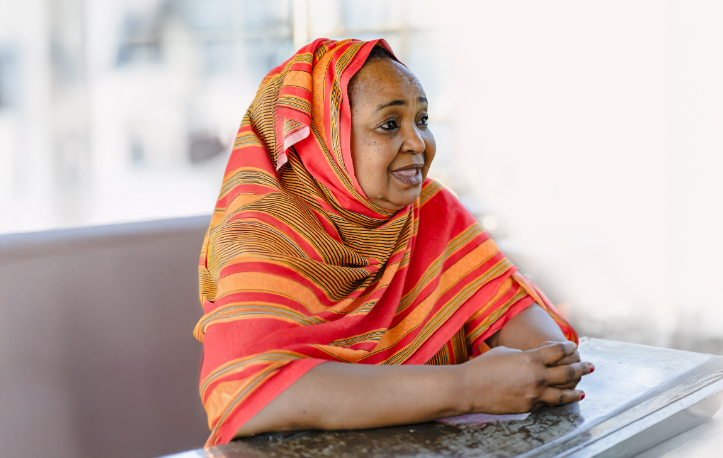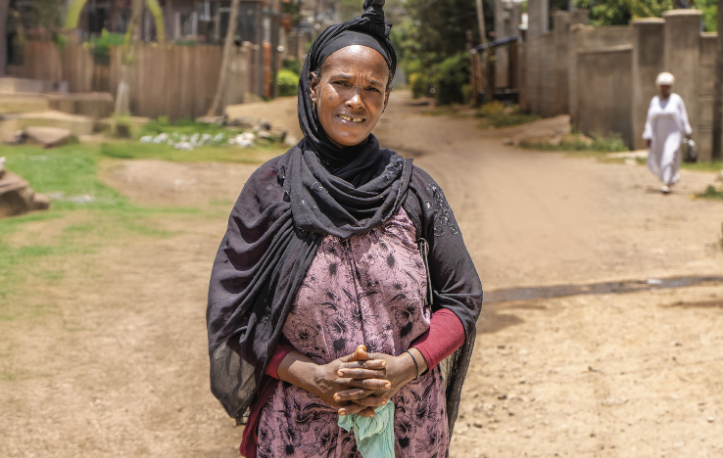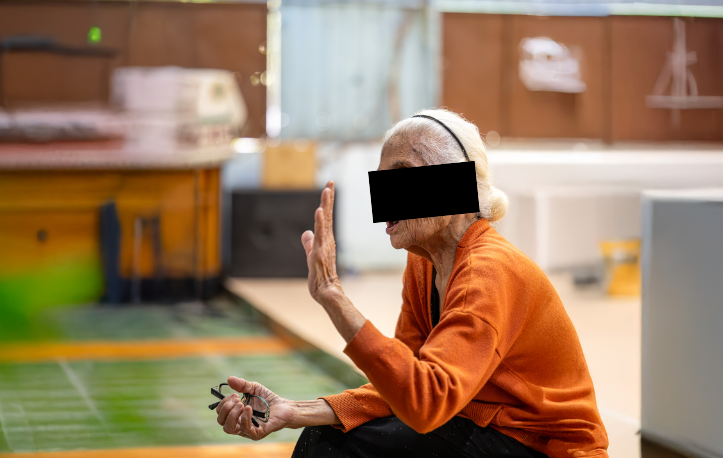“We thought that we had a paradise on earth here,” said a doctor who worked at Tchabi’s hospital. The hospital, along with a Christian school, a church and a runway, had all been built by missionaries who arrived at the mountaintop location in 1976.
Over the decades, Tchabi had been a peaceful oasis in an unstable region. It remained relatively secure throughout various violent conflicts, including a civil war that raged across the Democratic Republic of the Congo (DRC) in the 1990s.
But Tchabi’s peace was shattered in early 2019 when militants from the Allied Democratic Forces (ADF), a violent Islamist group, emerged from the jungle to assault and abduct local Christians.
“They took forty people the first time, including four doctors and two staff,” said Lau Babam, Tchabi’s village chief. “They spent two months in the bush, and then they let them go.” But some of those abducted, he said, are still missing.
Later in 2019, the ADF attacked again, causing even more death and destruction.
“The second time they came with a vision to destroy things, to kill people, to burn things down,” said Babam, who was away from the village at the time of the attack. “Everything they just destroyed,” he said. The militants killed Babam’s wife and six of his grandchildren, vandalised his house and destroyed the baptistry inside the village church.
A doctor who survived the attack heard some of the final, courageous words of the school’s Christian principal. The militants, he recalled, said, “We want you to be gone because the Christians are our enemies.” But the principal was unmoved. “He said his faith in Christ will never change,” the doctor recalled. “That is why they killed him.”
Many people fled Tchabi after the second attack, but not everyone. On the night of 30 May 2021, the ADF launched another devastating assault on those who remained in the village.
“They came in with machetes,” Babam said. “Some had guns, but a lot just had machetes. They would shoot somebody or cut them, and then they would burn them.”
Some of the villagers, including a woman named Gertrude, fled in the darkness. “We heard gunshots in the night,” she said. “We didn’t know who it was, and we ran into the forest.”
She later learned that many of her friends had been killed. “Our things had been carried off, and the homes were burned,” she said. The ADF had killed 10 members of Gertrude’s family, including her parents. In total, 182 people were killed in and around Tchabi.
The militants also took hostages with them back into the jungle. Babam said about 30 people are still missing. Before they disappeared into the jungle, the ADF fighters desecrated Tchabi’s church building by smashing everything inside and covering the walls with excrement. They also destroyed the school, looted the hospital and burned many homes and buildings.
In the aftermath of the attack, the Congolese government and the United Nations (UN) deployed soldiers to protect the village, but it remained mostly uninhabited for the next two years.
Once the soldiers had sufficiently secured the area, Tchabi’s residents began to return. Some set up temporary shelters on the primitive runway, since nothing remained but the gutted shells of their burned homes.
In August 2023, front-line workers delivered a shipment of Bibles to Tchabi, landing on the rough runway that hadn’t been used in three years. At one end of the runway was a large camp of UN peacekeeping forces, while at the other end was a mass grave where many of the villagers had been buried after the ADF attacks.
After the pilot ensured the feasibility of landing a 10-passenger plane on the runway, he transported a group of front-line workers and a cargo of Bibles to the remote village. Volunteers who helped unload and carry the boxes of Bibles turned the short walk to Tchabi’s church, which had only recently been restored, into a joyous parade.
Waiting inside the church were 103 villagers who had received two days of spiritual care for grief and emotional wounds caused by the deadly attacks. Everyone in attendance had lost relatives in the attacks. They had also lost nearly all of their material possessions, including their Bibles, when they fled Tchabi.
Before receiving their Bibles, some of the villagers re-enacted what had happened to them in a short drama they created as part of their healing process. As the re-enactment began, villagers acting as the militants pounded on the church walls and then rushed into the building brandishing stick ‘guns’ and grabbing ‘hostages’. Later, one of the actors returned carrying a backpack full of sheets of paper labelled with words like ‘trauma’, ‘loss’ and ‘unforgiveness’. Another actor, representing Christ, then removed the weighty words from her back.
In addition to re-enacting the attacks, most survivors drew pictures of what they had experienced. One drew a picture of a pastor being killed inside a church.
“Many are struggling with the fact that when [the attack] took place, they actually saw with their own eyes their parents being killed, being slaughtered,” said Hedeli, a Christian counsellor who travelled to Tchabi to minister to those traumatised by the attack. “[But they] are finding healing to their heart wounds when they are able to actually draw what has happened,” she said. “Art is being used to help bring healing as they draw out what they experienced and how they experienced it.”
Gertrude drew a picture of her family fleeing for their lives. She had stayed in the jungle for days before taking refuge in a neighbouring country, but she found no peace there either. “There was anger, there was pain and we weren’t able to speak,” she said. “There were bad dreams, no appetite. In our dreams, we would just dream of running and people being killed, butchered.”
Gertrude was hesitant to return to Tchabi. She said even small decisions were difficult because of her constant fear.
“It has been challenging just to kind of rebuild my life,” she said. “For example, I really need to buy plates. But if I go and buy these plates, I am constantly thinking, ‘Ah, maybe I will buy them and then [the ADF] will come’.”
She requests prayer as she continues the healing process. “Pray that we will be able to forgive, and that faith will come, and that we won’t have to worry about something like that happening again,” she said. Babam said forgiveness has had a great effect on his spiritual healing. “It touched my heart knowing how to forgive our enemies,” he said, reflecting on the teaching he received from Hedeli’s ministry. After Babam received his new Bible, he presented several Bibles to the soldiers and police officers who now protect Tchabi. He said that the arrival of the plane, the new Bibles and the counselling he received have given him hope.
“Your presence is very encouraging,” he told a front-line worker, adding that he was grateful for the care that he and other Tchabi villagers had received through the ministry. Another survivor of the attacks reinforced Babam’s gratitude with a hopeful declaration of God’s goodness: “The Lord,” he said, “has not forgotten His people.”




Submit a Prayer